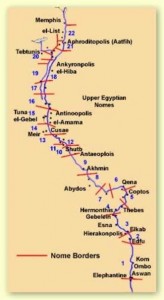
Nomes. Upper = 1-22. Lower = 1-20. Memphis: a beginning and end. Question. Why? The tail end of something begins...?
What is... 'a new state of'...you know what. Some call it 'an altered state' others refer to same as 'higher / lower'. That inner conversation we all have with ourselves, when we are attempting to work something out. Especially the 'personnel' stuff. In practical terms the word 'intelligence' could be used, i.e., to internalize. Everything we learn, starts off, does it not from those basic 'lower' levels. Each 'increment' of new knowledge could be described as an understanding now on a 'higher' level. "A new state of consciousness", i.e., ''food for thought.'' Or ''food for body and soul'' as represented in the Egyptian example with the 'crook' and 'flail'. [Chapter one, page 54, 'The Tutankhamun Prophecies'].
And/or..." A fundamental approach here is to consider these as a spectrum of perspectives, each useful at a particular step, until a new vantage point {'notch' link} is gained and a new perspective gives a view to new horizons." [Extract from the book 'The Magister' ].
As one example: Amarna = ''Horizon of the Aten'.
''Father'' = 'Servant' of same. 'Son' = 'living image 'of same - i.e., A 'connection' is made with those 'helping' hands. A further development of something within a learning curve {'arc'}.
That ''beginning'' represented at the base of a natural feature.
If understood correctly one could also use exactly the same words to define a learning process - the process and mechanics of - a step by step guide - to describing anything that is learn't from scratch, i.e.,as an example any subject material, i.e.,''new perspective'' = eureka moment? Now try ''horizon'' to see if you agree or not.
"Symbol of the lower Will, Is the Altar..."
"In basic form an altar is simply a table; a focus of consciousness."
"The altar of sacrifice demonstrates that where your treasure is there will your heart be also."
And/or: The English word 'focus' comes from the Latin for 'fireplace'. ['The Chase' / ITV / 31.1.22].
Hestia to enlarge.
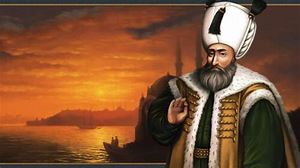
'The Lawgiver'. Moses with same epithet. Died when was almost 72. Moses 120. Two ''notable'' numbers. ''Vineyard'' mentioned. Question. Where was Moses buried?
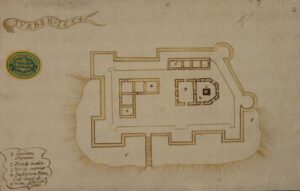 Side note: Recall the 'mummy' of Tut - had no heart. The ''gathering'' of all that 'treasure' represents same WHEN understood. That link to the word and meaning of the ''golden child''.
Side note: Recall the 'mummy' of Tut - had no heart. The ''gathering'' of all that 'treasure' represents same WHEN understood. That link to the word and meaning of the ''golden child''.
'Seeing' it?
And/or: Suleiman the Magnificient. Heart taken out of body and kept in a 'golden box'. Supposedly hidden under the 'tent'. That same tent that is seen within the boundaries of a semi-circle of the created towns layout plan. ['Expedition Unknown: Search for the Sultans Heart'].
That link to the word Gnosis i.e., Agnostic = 'unknown' value . Gnostic - a 'known' one BUT NOW in the 'spiritual' sense of the word i.e., that INNER one.
Recall the ''Help'' section.
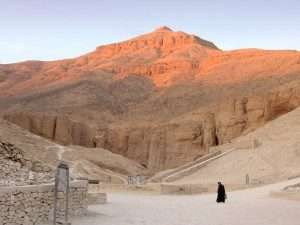
As the Ottomans entrenched their rule here through the 1570s, and a growing number of travellers came to visit Suleiman’s shrine, a mosque, a Dervish cloister and barracks grew up around the site, and it developed into a settlement known as Turbek – derived from the Turkish word “turbe”, which means tomb”.
When the Habsburgs retook the area in the 1680s, however, they razed this symbol of Ottoman conquest to the ground, and over subsequent centuries the location of Suleiman’s tomb became the stuff of rumour, speculation and legend.
The Süleymaniye Mosque (Turkish: Süleymaniye Camii, pronounced [sylejˈmaːnije]) is an Ottoman imperial mosque located on the Third Hill of Istanbul, Turkey. The mosque was commissioned by Suleiman the Magnificent (r. 1520–1566) and designed by the imperial architect Mimar Sinan. An inscription specifies the foundation date as 1550 and the inauguration date as 1557, although work on the complex probably continued for a few years after this.[1]
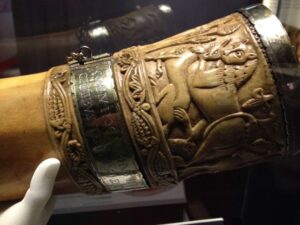
Golden horn?
The Süleymaniye Mosque is one of the best-known sights of Istanbul and from its location on the Third Hill it commands an extensive view of the city around the Golden Horn. Can hold twentyseven thousand worshippers. It is considered a masterpiece of Ottoman architecture and one of Mimar Sinan's greatest works.[2][3][4][5] It is the largest Ottoman-era mosque in the city.[6][4]
Like other Ottoman imperial foundations, the mosque is part of a larger külliye (religious and charitable complex) which included madrasas, a public kitchen, and a hospital, among others. Behind the qibla wall of the mosque is an enclosed cemetery containing the separate octagonal mausoleums of Suleiman the Magnificent and his wife Hurrem Sultan (Roxelana)...https://en.wikipedia.org/wiki/Bosphorus...The Golden Horn is the estuary of the Alibey and Kağıthane Rivers. It is 7.5 kilometers (4.7 miles) long, and 750 meters (2,460 feet) across at its widest. Its maximum depth, where it flows into the Bosphorus, is about 35 meters (115 feet). While the reference to a "horn" is understood to refer to the inlet's aerial silhouette, the significance of the designation "golden" remains more obscure.
Side note: The heart of Suleyman the Magnificent {'Lawgiver'} buried somewhere in a ''golden box''. Taken back 'home' without it. Coincidence? ['Expedition Unknown' / Sat. TV].


''T''
"To sacrifice a 'lower' value to a 'higher' value is to give substance and power to the desire which has been 'sacrificed'. If this higher value is of a 'spiritual' order, the spiritual power is attracted by this desire, and givers to the sacrificer a power of domination over his lower states." ['Journey into the Light'].
Try Part 1 to enlarge on the word ''sacrifice'' before that inner voice {first impressions?} suggest something else. Then try ''teacher''.
Refresher: "Everyone has an internal thought process: that silent other self who speaks to you; the one you debate with." [First sentence; first paragraph; first page of the book by Q. S. Lam].
A working example: ''That voice in my head, which used to be very distant, saying: 'Go to bed. Your not going out tonight' - is now very loud. Years ago it would have been {cupping his ear}: 'You what? I beg your fcking pardon! These days its: 'Chill out, you've had your share' - and i'm listening to that voice a lot more - I dont want to feel shit anymore.'' [Liam Gallagher: 'Readers Digest' / July 2022].
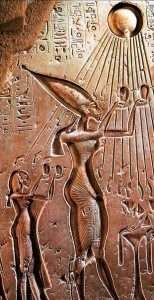 We all do it, day by day, in everything that we do, but without using such words, to explain it to ourselves. We just do it, do we not. The only difference is that we are now attempting to understand our own place in the 'bigger' picture - by way of the same process - i.e.,in the conscious sense {manifested?} - of the word, which this subject purports to teach us, ['micro within the macro']. Hence that link to one of the first quotes at the beginning of this web page, i.e., "Let him who seeks, continue seeking until he finds. When he finds he will become troubled. When he becomes troubled he will be astonished, and he will rule over all."i.e., 'food' for thought?
We all do it, day by day, in everything that we do, but without using such words, to explain it to ourselves. We just do it, do we not. The only difference is that we are now attempting to understand our own place in the 'bigger' picture - by way of the same process - i.e.,in the conscious sense {manifested?} - of the word, which this subject purports to teach us, ['micro within the macro']. Hence that link to one of the first quotes at the beginning of this web page, i.e., "Let him who seeks, continue seeking until he finds. When he finds he will become troubled. When he becomes troubled he will be astonished, and he will rule over all."i.e., 'food' for thought?
The real question we should all ask, however, and which, is this web pages primary aim... Is this 'subject' a valid one? Is it relevant to ourselves? Is it sense or non-sense. Is it a possibility or not. Is it fact or fiction? At the very least, an understanding of a subject is the outcome.
A {practical?} example: "I recollect that the talks which followed that evening struck me by the fact that many people heard something entirely different to what G. had said; others only paid attention to G.'s secondary and nonessential remarks and remembered only these. The fundamental principles in what G. said, escaped most of them. Only very few asked questions on the very essential things he said. One of these questions has remained in my memory: 'In what way can one evoke the struggle between ''yes'' and ''no'' in oneself?', someone asked. 'Sacrifice is necessary, said G. If nothing is sacrificed nothing is obtained...Sacrifice is necessary if only while the process of crystallization is going on'..." ['In Search of the Miraculous' / P. D. Ouspensky]. Among others try ''struggle'' and/or ''crystalliz{s}ation''.

Eastern_gate_of_huldah_
"In basic form an altar is simply a table; a focus of consciousness."
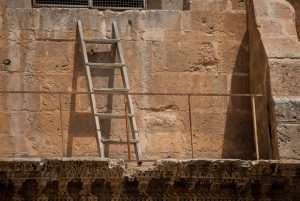 "The altar of sacrifice demonstrates that where your treasure is there will your heart be also."
"The altar of sacrifice demonstrates that where your treasure is there will your heart be also."
And/or: Saturn, as you know, is the binding, crystallizing vibration. The pair of opposites assigned to it is Dominion and Slavery, because our expression of this 'vibration' {i.e., in the ''energy'' sense of the word, i.e., recall J. Campbell's quote}, either frees or limits us, according to the point of view that we take. " [Page 51 of the book by P. F. Case. Vol 1].
REFRESHER: "To sacrifice a 'lower' value to a 'higher' value is to give substance and power to the desire which has been 'sacrificed'. If this higher value is of a 'spiritual' order, the spiritual power is attracted by this desire, and givers to the sacrificer a power of domination over his lower states." ['Journey into the Light'].
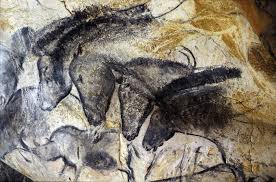
Pictures from the same cave system; mentioned elsewhere. ''Caves'' relative to 'Horses 'in relation to 'chariots'. Recall what they all REPRESENT. A 'transition' {or sequence?} of events - in the internal sense? relative to an understanding?
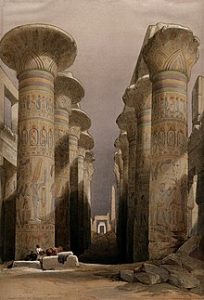
Mountain low, Valley high.
The Hebrews of old testament fame used the story of Genesis for the reader to understand his/her relationship between higher and lower self, by way of the first/third person, [ I,we ] i.e., Yahweh [Jehovah] / Elohim. "Know thyself". The implication is that one leads to the other, i.e., understanding the self leads to understanding this subject...and/or...understanding of this subject leads to understanding the self. Which ever comes first, [ In their opinion...by implication ].
The Quran does the same by using such words as 'we' and 'us'. Described as first and second clause.
As the author of 'The Secret History of the World' says..."This is the aim of initiation, to make more and more experience conscious. To roll back the boundaries of consciousness."
"To roll back the boundaries of consciousness." {as seen now from a different {working?} perspective}: "Personality consists of 'rolls' and of 'buffers' resulting from a certain work of the 'centers'..." ['In Search of the Miraculous'].
That 'development', throughout this subject, indicative within 'gods' name,i.e.,Yahweh, Adonai, Jehovah and Elohim. [ www.catholic.com/quick questions/is-gods-name-yahweh-or-jehovah].

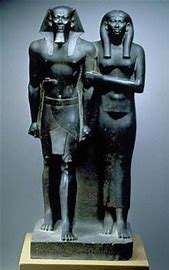 A working example?..."If you make the effort to not go with the 'I's that you know are from old ways that do not serve your aim of evolving and awakening, you will reap the reward both for yourself and family. You will experience an increase of marvelous energy, an empowering of your will to go with the higher within your self, and a new peace of mind. There is no future in staying on the road of old habits and wrong behavior. There is only unspeakable misery. You have been given the chance to save yourself and family from such dark despair. Your past does not need to haunt or control you. You have a chance to acquire wisdom, to incarnate goodness, to find fulfillment by doing right." ['Wisdom of the 4th Way']. Continued elsewhere.
A working example?..."If you make the effort to not go with the 'I's that you know are from old ways that do not serve your aim of evolving and awakening, you will reap the reward both for yourself and family. You will experience an increase of marvelous energy, an empowering of your will to go with the higher within your self, and a new peace of mind. There is no future in staying on the road of old habits and wrong behavior. There is only unspeakable misery. You have been given the chance to save yourself and family from such dark despair. Your past does not need to haunt or control you. You have a chance to acquire wisdom, to incarnate goodness, to find fulfillment by doing right." ['Wisdom of the 4th Way']. Continued elsewhere.
Follow the title of the book to 'see' its connection to the subject as a whole.
''Quartz pebble'' ?

Crystal clear? 'Sheet of Glass'?
Side note: ''wrong behaviour'' {and/or 'wrong crystallization'?} = 'Lame foot'?
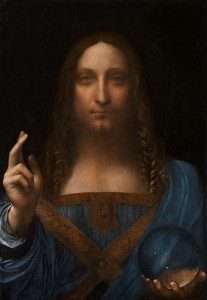
Multiplication?
And/or: "An ancient adept has said: 'If the wrong man uses the right means, the right means work in the wrong way.' This Chinese saying, unfortunately all to true..." ['The Secret of the Golden Flower'].
"During their angelic conversations , the Archangel Gabriel asked Mohammed to choose a refreshment. Mohammed choose milk - which is called moon juice....It is highly significant from an esoteric point of view, that the angel who dictated the Quran to Muhammad was Gabriel, traditionally Archangel of the moon. Allah is the Muslim name for Jehovah, great god of the moon and 'thought'. Gabriel is here heralding the power of thought to control human passions and quell fantasy, and his god is the great god of thou - shalt - not, represented in Muslim iconography by the crescent moon." [Chapter 17, 'The Secret History of the World'].
And/or: Hebrew children’s prayer: "In the name of the Lord God of Israel, may Michael, the protection of God, be at my right hand, and Gabriel, the power of God, at my left, before me Uriel, the light of God, behind me Raphael, the healing of God, and above my head Shekhinat El, the presence of God."{Page 283 'The Western Way' / C + J Matthews}.

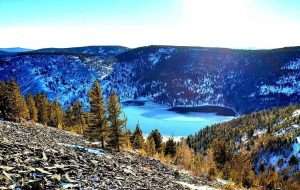
Lady of the lake?
Analogy of same, but seen from a different perspective..."All knowledge is the result of illumination from above, not of abstractions from below. And in the mystical angelologies of Avicenna and Suhrawardi, that active intellect, which is merely conceived by abstract theorizing {i.e.,objectively?}, is actually encountered in the 'Event' - at the limit of the cosmos - {i.e.,'boundary' line of higher/lower divisions} - Hence the final sentence - ''as personified and individualised in a Celestial Person {'angel' and/or 'archetype'?}, who is in each case unique. Each human soul has a counterpart in heaven, who is the eternal and 'perfected' individuality of that soul..." Continued/enlarged elsewhere. [From the book 'The World Turned Inside Out'. Mentioned elsewhere].
N.B. ''Event'' - in relation to 'bridging a gap', i.e.,something becoming ''manifested''.
Fenland?
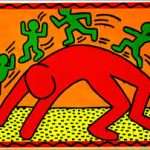
A bridge over 'wetlands'?
Analogy of same..."For instance the mystery of the Pentecost is that is does not occur in time but is forever available to those with access to the 'mundus imaginalis'. And it is through the encounter with the 'Angel of the Holy Spirit', the Angel of the Face; through that encounter which is the result of a Quest and a struggle, that each individual is in fact promoted to the rank of person {i.e.,'higher' of the 'lower' - this readers input}." [Taken from the book 'The World Turned Inside Out'. Emphasis, this readers].
'Fifty / Rowing' to enlarge.
''Mundus imaginalis'' - Corbins definition/term for that aspect of the imagination that we use to define something rather than fantasize about it.
A more ‘studious’ approach of that same understanding between higher/lower is symbolized in the ‘relationship’ between two opposing landscapes. [ ‘Macro’ ] Such as...The Babylonian Marduk and the Hebrew Yahweh/Jehovah. Example of same- ‘Battle of the gods: The god of Israel versus Marduk of Babylon’. By M. Kessler. Try ''method'' - to understand its universal {appeal?} - if only in defining a subject - or subject material.
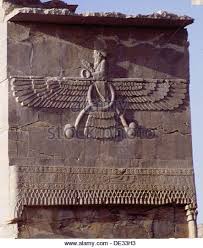
Ancient Aliens program seeks an answer to the ''all seeing eye'' that all cultures seem to use. [ Series 11. Episode 12].
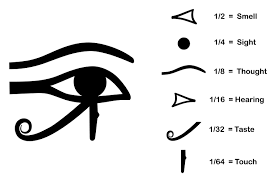
Watching? And/or: "If you are reading this, it is because you desire to hear the Voice, a still small voice {'ishon'?], yes, but nevertheless the voice of god. When you hear it {my sheep hear my voice and another they will not follow}, you recognise something strangely familiar about it, and then you come to realise that it is your own voice. It brings all things to remembrance and bears witness of the truth to you. It brings you peace and understanding. It is the Voice of Revelation, and you stand right in the midst of it. You stand right in the midst of a great Light {understanding} just as Saul did on the road to Damascus. And in the Light you hear and you know it is the most secure place you could ever be." {'God in a Box' / Jane Woodward}.
Practical example {'Macro'} could be..."What exactly was the Garden of Eden, where Adam and Eve are said to have lived in a state of 'perpetual bliss' BEFORE the time of the fall? Was this the true home of the 'Watchers' within the book of Enoch? Could 'its' discovery hold the key to understanding the origin behind humankind's contact with 'angels' during some former age? Did it exist at Gobekli-tepe or somewhere else - in the mountains to the northeast, perhaps, where the 4 'rivers' of paradise take their rise? Only by understanding the mysteries of Gobekli-tepe would any real answers be forthcoming, and so it is here that our quest must begin, starting with its rediscovery in 1994...I will ask the reader to bear with me now as i switch from a first person to a third person narrative in order to determine who built Gobekli-tepe, and why. My personal quest is resumed in part 4, when a powerful dream initiates a fresh search for the source of the terrestrial paradise." [From the book by A. Collins. All emphasis, this readers].
Try ''watcher'' to understand that 'story' and its relationship to Enoch.
Trojans and Greeks?
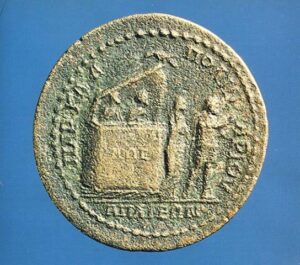
This large bronze medallion was struck 1700 years ago at Apameia Kibotos in Asia Minor (modern Turkey) near the mountains of Ararat where, it is said, Noah’s Ark came to rest after the flood.
Another author looking for something external rather than that 'inner'. All explained within. As is his own ''powerful dream'' {i.e., 'archetypes'} that everyone experiences sooner or later - REGARDLESS OF SUBJECT MATERIAL. Very similar to the narrator of the 'The Lost Tomb of Genghis Khan' who also speaks of same experience - but because there is NO understanding of this first yet final subject - then it follows that no correct conclusion or result can be got. Clue. Northeast = 'a start point' - of something and/or 'top-down' as a means to a further understanding.
"...Crowley once said that the magician's sole aim was to interpret his own 'magical' record, and after many years, i have come to agree with him." [Extract from the book 'The Magister'].
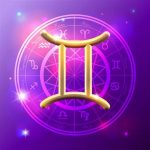
''Duality'' ? As a means....?
EXOteric? example {i.e.,in the objective sense of the word: "And yet his overarching goal was ecumenical: to reveal by means of comparative philosophy and comparative spiritual research the common bonds which unite the Peoples of the Book into a single destiny and which must be understood so that there can be a dialogue between persons: - since a dialogue takes place between 'persons', it is necessary, in order that there be dialogue, that the persons dialoguing have between them something in common. A dialogue takes place between 'thou' and 'I' . It is necessary that 'thou' and 'I' be invested with the same responsibility for a personal destiny." [From the book by T. Cheetham]. Try ''method'' and/or ''struggle'' and/or ''strive'' to make a connection {eureka moment?} - if only in defining a subject.
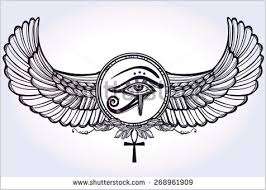 A working example?..."Gurdjieff states that one of our most important mistakes we make is our illusion about our unity. He writes: 'His ''I'' changes as quickly as his thoughts, feelings, and moods, and he makes the profound mistake in considering himself always one and the same person; in reality he is always a different person, not the one he was a moment ago.' Our every thought and desire lives separately and independently from the whole. According to Gurdjieff, we are made of thousands of separate I's, often unknown to each other, and sometimes mutually exclusive and hostile to each other. The alternation of 'I's is controlled by accidentally external influences. There is nothing in us able to control the change of 'I's, mainly because we do not notice it. Each separate 'I' calls itself 'I' and acts in the name of the whole person. This explains why people so often make decisions and so seldom carry them out. A little self observation will prove that we usually think , feel, move and respond to the stimulations acting on us, without our being aware of what is happening within us. This self-observation is in fact the first practical effort required in the 4th Way. The student is to create an ''observing I'' which observes with objectivity his/her inner activity {Guardian of the Gate?}. To develop an objective space within which we can see without judging is extremely difficult but is also the first breakthrough out of our mechanical {'sleep'?} behavior and the virtual hypnotic trance in which it keeps us." ['The Wisdom of the 4th Way'. Mentioned elsewhere]. Continued elsewhere.
A working example?..."Gurdjieff states that one of our most important mistakes we make is our illusion about our unity. He writes: 'His ''I'' changes as quickly as his thoughts, feelings, and moods, and he makes the profound mistake in considering himself always one and the same person; in reality he is always a different person, not the one he was a moment ago.' Our every thought and desire lives separately and independently from the whole. According to Gurdjieff, we are made of thousands of separate I's, often unknown to each other, and sometimes mutually exclusive and hostile to each other. The alternation of 'I's is controlled by accidentally external influences. There is nothing in us able to control the change of 'I's, mainly because we do not notice it. Each separate 'I' calls itself 'I' and acts in the name of the whole person. This explains why people so often make decisions and so seldom carry them out. A little self observation will prove that we usually think , feel, move and respond to the stimulations acting on us, without our being aware of what is happening within us. This self-observation is in fact the first practical effort required in the 4th Way. The student is to create an ''observing I'' which observes with objectivity his/her inner activity {Guardian of the Gate?}. To develop an objective space within which we can see without judging is extremely difficult but is also the first breakthrough out of our mechanical {'sleep'?} behavior and the virtual hypnotic trance in which it keeps us." ['The Wisdom of the 4th Way'. Mentioned elsewhere]. Continued elsewhere.
"Everyone has an internal thought process: that silent other self who speaks to you; the one you debate with." [First sentence; first paragraph; first page of the book by Q. S. Lam]. Anything?
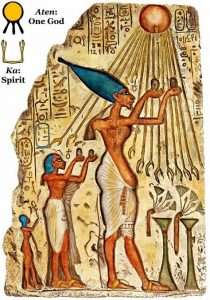
N/E in relation to S/W in relation to S/E - all as a means....? ''Hypotenuse'' link? Higher of the lower?
 From a different perspective: "Let us try for a few moments to establish some sort of mediation between ''I'' ''You'' and ''the others''. Whoever is speaking or listening, ''I'' is to be the one who speaks; ''You'' is to be the one who listens. Let us make no further distinctions, and try to establish a means of mediation. When a child suckles, the milk is the mediation. Between heaven which gives, and the flower which receives, light is the mediation. The mystery is the assimilation of that which is received and absorbed. But the child does not think of the mystery, it simply sucks, and the flower does not think of the mystery, it simply opens - at whatever time it can 'receive' what it requires. This is wisdom - wisdom which 'knows' the necessary gesture to perform the necessary function at the necessary moment..." ['The Opening of the Way']. Try ''child'' / ''milk'' / ''flower'' - for a further connection.
From a different perspective: "Let us try for a few moments to establish some sort of mediation between ''I'' ''You'' and ''the others''. Whoever is speaking or listening, ''I'' is to be the one who speaks; ''You'' is to be the one who listens. Let us make no further distinctions, and try to establish a means of mediation. When a child suckles, the milk is the mediation. Between heaven which gives, and the flower which receives, light is the mediation. The mystery is the assimilation of that which is received and absorbed. But the child does not think of the mystery, it simply sucks, and the flower does not think of the mystery, it simply opens - at whatever time it can 'receive' what it requires. This is wisdom - wisdom which 'knows' the necessary gesture to perform the necessary function at the necessary moment..." ['The Opening of the Way']. Try ''child'' / ''milk'' / ''flower'' - for a further connection.
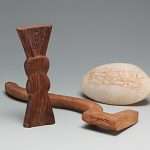 Something hinted at {again} in 'story' form: ''They built a brand 'new city' called Tel el Amarna in the exact 'center' of Egypt....out of white stones {'new name'?}....His father ruled from Thebes. Akhenaten from Amarna....There was no pharaohs before Akhenaten, only kings {this reader believes that came with Hatshepsut - but that it is only a minor detail - within the whole}. He gave them the image of the sun as god, because this image was something they could not put on their altars again {'untouched by fire'?}....There was another reason he gave them the image of the sun was that he told them, that the breath of life, the prana field {not source} - came from the 'sun'. [Pages 136/7 'The Ancient Secret of the Flower of Life' / D. Melchizedek].
Something hinted at {again} in 'story' form: ''They built a brand 'new city' called Tel el Amarna in the exact 'center' of Egypt....out of white stones {'new name'?}....His father ruled from Thebes. Akhenaten from Amarna....There was no pharaohs before Akhenaten, only kings {this reader believes that came with Hatshepsut - but that it is only a minor detail - within the whole}. He gave them the image of the sun as god, because this image was something they could not put on their altars again {'untouched by fire'?}....There was another reason he gave them the image of the sun was that he told them, that the breath of life, the prana field {not source} - came from the 'sun'. [Pages 136/7 'The Ancient Secret of the Flower of Life' / D. Melchizedek].
''Running the Fields''? {Egypts - Sed Festival/Jubilee enactment}.
Other clues = 'Atlantis' { therefore Poseidon link i.e., from the 'sea' not river} - in relation to the Lotus flower. Wide and narrow hips {i.e., in relation to ''joined at the hip'' i.e., a balance has to be achieved BEFORE that can be done} etc, etc.
Try East / West in relation to 'Reincarnation'/ Incarnation.
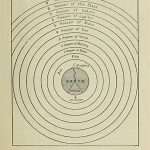
Recall Part 1
Together with {within that same MINDSET}: '' The sun is the brightest object visible to mortal sight {'line of sight' therefore 'naked/unnaked' link}, and a universal symbol of the Supreme Deity. While Fludd did not accept the Copernician doctrine of the sun as the center of the material universe, like Ficino he did accord it absolute primacy in the planetary order, as the MIDPOINT of the 'chain of being' stretching from 'heaven' to earth. The Sun in the sky like the heart in the human body is a 'manifestation' on a particular level.'' [Page 20 'Robert Fludd' / J. Godwin].
Analogy {method?}i.e., with the same principle in mind {the very first ONE?}: '' He who looked on from afar'' in relation to the main 'god' {principle?} - Zeus - who took no physical part in that universally known conflict {struggle?} between the Trojans {higher?} and the Greeks {lower?}. 'See' it? Enlarged throughout. As is the intention of {but now from the 'female' perspective}: "The path of Jupiter never strays far from the ecliptic, and Homer faced a challenge when he had to express Athene's affection for or assistance to the warriors Achilles, Odysseus and Diomedes, whose personal stars lie at a good distance outside the zodiac. In the case of Achilles {Canis Major}, Homer says, that Athene supports him 'from afar', or that of the others 'that no man could see her'..." {'Homer's Secret Iliad'].
Therefore not within ''a line of sight''?

Which one's the pet monkey?

The face that sank a thousand ships {or rockets}? Mad, bad, or just sad?
Question. Zeus {'shadow'} - Athene {'anima'}. Ecliptic therefore = line of sight to ones horizon? {by way of the 'objective' view?}. Try ''arc''.
Athene - born from the 'forehead of Zeus' = ''head of the corner?'' If so, therefore S/E?
All as a means...?
A {'natural'} example: "A person becomes kinder when he sees his world from far {''afar''?} away. Sometimes i joke that, when you have aggressive politicians who cause problems for ordinary people you should put them in a rocket and send them into space, where they will understand the planet and humanity upon it... " [Quote from Alexander Volkov from a position {perspective?} above earth on the Russian sky lab - Mir. 'Cosmonauts: The Space Race' / Series 1. Episode 2].
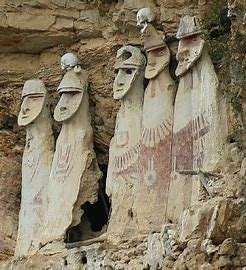
Cloud People of Peru. 'Higher' of the lower or 'lower' of the higher?

Galadriel.
As is the intention of: "Do you think i am not subject to them as you are?'' retorted the sculptor. ''But when this happens, i am, as you say, in bad shape. I make my way up the ladder of my desire and go above the clouds that are making me sad, and from the top i look down at the reason for my bad mood. Seen from afar, outside the bilious reactions, they diminish in importance and i can even consider them impersonally, as if they belonged to someone else. Then i weigh them in terms of my essential goals, as i can easily distinguish that which i am obliged to undergo from that which i can eliminate." ['Journey Into the Light'].
'Cloud of Unknowing'?
And/or: ''In an episode known as the temptation of Saint Antony....he was granted a vision of the 'devil' - a tall black man with his head in the clouds. He also 'saw' angels who were able to guide some human spirits up, beyond the devils reach.'' [Page 329 'The Secret History of the World' / J. Black].
Analogy: ''Archetypes exist both in the light and in the shadows of the mind. In the world of light we find gods and goddesses of unquestionable numinosity {'shining ones'?} and unspeakable wisdom and loveliness, while in the shadows dwell the demonic monsters nourished by the shadows of our personalities.'' [Page 127 'The Gnostic Jung and the Seven Sermons of the Dead' / S. Hoeller].
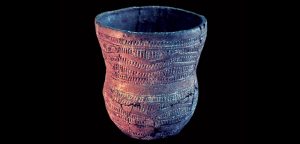
Handicraft?
 A working example i.e., within a dream:{understanding of}: ''I noticed how unspeakably profound was the action of the people getting on and off the bus. On and off - the eternal return. Pagan yet Christian. Circular but linear {90/180?}. The 'bus' went along its route of manifest destiny....people kept climbing aboard at intervals to catch its life force....but where was the bus going?....Getting off at 57th Street, we found ourselves at a store specializing in handicrafts from Czechoslovakia. Soon i was transfixed by a wooden statue. It was a rough {unhewn?} carving of Jesus sitting with his legs crossed, leaning his face in his hand, waiting, just waiting. And i knew what it meant. He was waiting just like me for his destiny to catch up with him...'' [Page 177 'A Mythic Life' / J. Houston].
A working example i.e., within a dream:{understanding of}: ''I noticed how unspeakably profound was the action of the people getting on and off the bus. On and off - the eternal return. Pagan yet Christian. Circular but linear {90/180?}. The 'bus' went along its route of manifest destiny....people kept climbing aboard at intervals to catch its life force....but where was the bus going?....Getting off at 57th Street, we found ourselves at a store specializing in handicrafts from Czechoslovakia. Soon i was transfixed by a wooden statue. It was a rough {unhewn?} carving of Jesus sitting with his legs crossed, leaning his face in his hand, waiting, just waiting. And i knew what it meant. He was waiting just like me for his destiny to catch up with him...'' [Page 177 'A Mythic Life' / J. Houston].
Stone and wood. Fire and water {90/180}. Try Beaker People to enlarge - in the Macro SENSE of the word.
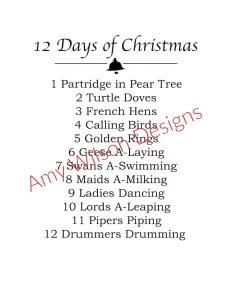 For this reader a more practical analogy of the same, { ‘Micro’ equivalent.} is the title of Mr A. Partridges book...’I, Partridge. We need to talk about Alan.' Just place your own name within the appropriate slots and you get a good idea of the attempt to do the same {as ONE example} by way of the ’relationship’ between Yahweh/Elohim...in that; in the past and present; best seller of all books {according to statistics}...and its intended purpose...to the reader in mind. {As an example, look up ''Moses'' in the 'search box'}. An especially in depth publication of same in relation to the full framework...’Inner Christianity’. Chapter two onwards. By R. Smolley. Or the chapter entitled "The role of 'I' [page,101] within the book, 'The Dancing Wu Li Masters' [an overview of the new physics], by G. Zukav.
For this reader a more practical analogy of the same, { ‘Micro’ equivalent.} is the title of Mr A. Partridges book...’I, Partridge. We need to talk about Alan.' Just place your own name within the appropriate slots and you get a good idea of the attempt to do the same {as ONE example} by way of the ’relationship’ between Yahweh/Elohim...in that; in the past and present; best seller of all books {according to statistics}...and its intended purpose...to the reader in mind. {As an example, look up ''Moses'' in the 'search box'}. An especially in depth publication of same in relation to the full framework...’Inner Christianity’. Chapter two onwards. By R. Smolley. Or the chapter entitled "The role of 'I' [page,101] within the book, 'The Dancing Wu Li Masters' [an overview of the new physics], by G. Zukav.
'I and Thou' / M. Buber.
And/or: Jean Thomas used throughout in the book 'Journey Into The Light' as a means {method} within the framework of a story to define higher {Jean} and lower {Thomas} along that individuals personal path.
A practical example: ''Look Tom, {pointing} there's a litte cloud just above K2 - that little horizontal one - its your mum waving. Think its a sign from your mum knowing that you are here.'' And/or: while leaving a gift of apricots, walnuts and almonds: ''This is Alisons last mountain.'' [BBC 2].
''Under the apricot tree i woke you. There your mother conceived you - she bore you. Place me as a seal upon your heart, as a seal upon your arm.... For love is as strong as death....Mighty waters cannot quench love, nor rivers wash it away....'' [Song of Songs {8:6-7, attributed to King Solomon].
'144'?
Understanding this subjects most commonly used key word,i.e.,'divine', deciphers the core essence of this subjects 'framework'. The core essence of all 'esoteric' literature. Found within. That understanding also explains why the subject of the 'psyche' is used as 'its' main teaching aid. Clue. You cannot have one without the other; but one has to come before the other. See it?
"Esotericism is not a collection of extraordinary and unknown things, but rather it is above all a less ordinary and less known way of seeing ordinary and known things - of 'seeing' their profundity." [Extract from the book by Tomberg].
Refresher: "Ancient symbols have great value - if only because they compel one to avoid the pitfall of ''taking things for granted''. By making things difficult, they force the mind to dig down into the roots of reality and to fathom deeply unconscious vital processes." ['The Zodiac as the Universal Matrix' / Dane Rudhyar].
Cancer? {through to 'Capricorn'?}. As a means....?
"...Crowley once said that the magician's sole aim was to interpret his own 'magical' record, and after many years, i have come to agree with him." [Extract from the book 'The Magister'].
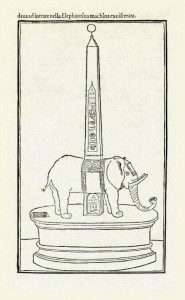
Can u see anything by now? i.e., Why the elephant? Why does the beginning [or foundation ] of the obelisk, [or pillar] begin under, [or ''lower'' ]. Why in the form of a cube? That together with the four physical legs {''life'' bit}. Link to the symbolism of five. What does five represent? Understand this subject, to define the reason and purpose of the name Elephant Island. [ ''The Berni Elephant Obelisk, stands in the middle of the piazza, in front of the church of Santa Maria Minerva, just round the corner from the Pantheon in Rome'']. Question. Bobbin for a stand. Eye of the Needle as a means....?
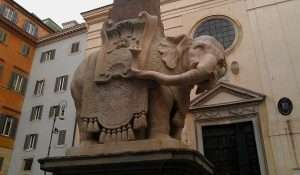
Beast of burden? For prince only?
That relationship represented by beginning/end and/or alpha/omega and/or micro/macro and/or inner/outer or exterior/interior, [Greater/Lesser Bear;being its physical form/representation ]. What eventually became represented in complete form as the ‘godhead’, [ Hebrew. Explained elsewhere].
"As we have explained elsewhere, initiation in its first part, which properly concerns the possibilities of the human state and constitutes what are called the ''lesser mysteries,'' has as its goal precisely the restoration of the 'Primordial state; in other words, through this initiation, if it is effectively realized, man is brought back from his present 'uncentered' [offset/fall/'heel stone' link. ] condition to the central position which would normally be his, and is re-established in all the prerogatives inherent to that central situation {Aten to Amun?}. 'True man,' then, is he who has effectively reached the end of the ''lesser mysteries,'' [i.e., represented with ''king of'' or ''lord of'' and/or ''son of'' and/or ''noble'' - as used by Homer], that is, the very perfection of the human state; because of this he is henceforth definitively established in the 'invariable middle,' and therefore escapes the vicissitudes of the 'cosmic wheel,' since the center does not participate in the movement of the wheel but is the fixed and immovable point around which the movement occurs {'mooring post'?}. When he has arrived at this point, 'true man,' has not yet attained the supreme degree, which is the final goal of initiation and the term of the 'greater mysteries' ; [ i.e., represented as ''penetrating the bosom of the heart'' i.e., 'grace' link] but he has passed from circumference to center, from 'outward' to 'inward,' and so truly fulfils the function of 'unmoved mover' with respect to the world that is his......." [ Chapter 9, 'The Great Triad' by R. Guenon].
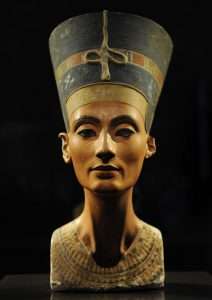
Higher or lower?
'Intelligence of the heart'? Enlarged elsewhere.
Think about all that 'movement' in relation to the ''Precession of the Equinoxes.'' FROM a ''horizontal'' perspective. As a representation of something. Nothing else.
"...To meditate is to deepen; it is to go to the heart of things." [Extract from the book by Tomberg. 'Letter 21' ].
'...to turn ones corner'.
Side note: ''Minerva /mɪˈnɜːrvə/ is the Roman goddess of wisdom and strategic warfare, and the sponsor of arts, trade, and strategy. Minerva is not a patron of violence such as Mars, but of defensive war only. From the second century BC onward, the Romans equated her with the Greek goddess Athena. Minerva is one of the three Roman deities in the Capitoline Triad, along with Jupiter and Juno.
She was the virgin goddess of music, poetry, medicine, wisdom, commerce, weaving, and the crafts.'' [Wiki].
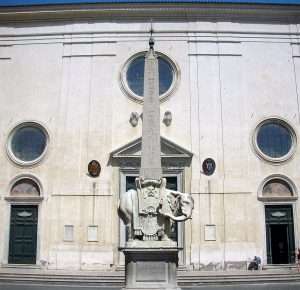
'Face on' or in profile? Going east?
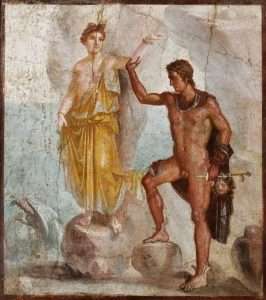
'Anima' or 'animus' chained/imprisoned? Pedestal? Something 'set in stone'?
Elephant and Obelisk is a statue of an elephant carrying an obelisk, designed by the Italian artist Gian Lorenzo Bernini. It was unveiled in 1667 in the Piazza della Minerva in Rome, adjacent to the church of Santa Maria sopra Minerva, where it stands today....The red granite obelisk was discovered in 1665 during excavations near the church of Santa Maria sopra Minerva. It had probably been brought to Rome in the first century AD for the temple to the Egyptian goddess Isis that was located there. The obelisk was originally erected by Pharaoh Apries of the Twenty-sixth Dynasty of Egypt,[1] about 580 BC, in his capital Sais....The Latin inscription at one side of the pedestal reads: "Let any beholder of the carved images of the wisdom of Egypt on the obelisk carried by the elephant, the strongest of beasts, realize that it takes a robust mind to carry solid wisdom."
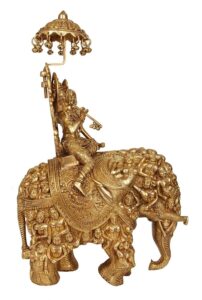
'Nineteen' milk maids?
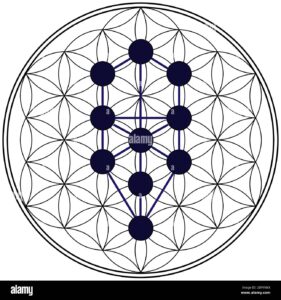 And/or: It is said that “union makes force”, and one understands by this the alliance of individual wills with a view to achieving a common aim. It is the formula for the quantitative increase of force. With respect to qualitative force, it would be appropriate to say that “unity is force”, because one is strong only in so far as there is unity of spirit, soul and body, i.e. in so far as there is virginity. It is inner conflict that renders us weak: the fact that we serve two or even three masters at the same time.
And/or: It is said that “union makes force”, and one understands by this the alliance of individual wills with a view to achieving a common aim. It is the formula for the quantitative increase of force. With respect to qualitative force, it would be appropriate to say that “unity is force”, because one is strong only in so far as there is unity of spirit, soul and body, i.e. in so far as there is virginity. It is inner conflict that renders us weak: the fact that we serve two or even three masters at the same time.
The Emerald Table of Hermes states not only the principle of universal analogy, but also that of universal force: “to accomplish the miracles of one thing”. It teaches concerning the “strongest of all powers, the force of all forces, for it overcometh every subtle thing and doth penetrate every solid substance” (Tabula Smaragdina, 9).
Mountain low, valley high.
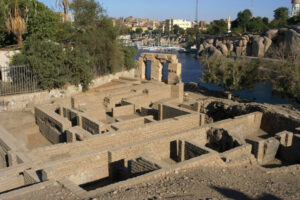
Three boulders began the temple construction through many generations. Avebury?
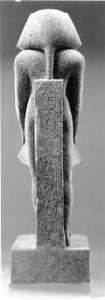
"Behind Will, stands desire."
The force taught by the Emerald Table is the unity in action of heaven and earth, for thelema (the fundamental will) “doth ascend from earth to heaven; again it doth descend to earth, and uniteth in itself the force from things superior and things inferior” (Tabula Smaragdina, 8).
Side note: "In Metamorphoses, Andromeda (mythology) is the daughter of an Ethiopian king and queen, Cepheus and Cassiopeia. Cassiopeia was very boastful about her beauty, and asserted that she was more beautiful than Juno, the queen of the gods and the Nereids. Insulted by Cassiopeia's assertions, Neptune sent a sea monster {Cetus} to the Ethiopian coast {'east'?}. Neptune then could only be appeased upon the sacrifice of Andromeda, the king's beautiful virgin daughter, to the sea monster. Andromeda was chained naked to rocks by the coast, awaiting the sea monster. Perseus, passing by, noticed the beautiful girl and made a deal with her parents that he would save her, should he be allowed to have her hand in marriage. The king and queen agreed and Andromeda was spared."
Refresher: "East is a beginning, west its ending."

Council flag.

Isle of Wight flag. Lozenge?
And/or: "The Needles are a row of three stacks of chalk that rise about 30 metres (98 ft) out of the sea off the western extremity of the Isle of Wight in the English Channel, United Kingdom, close to Alum Bay and Scratchell's Bay, and part of Totland, the westernmost civil parish of the Isle of Wight. The Needles Lighthouse stands at the outer, western end of the formation. Built in 1859, it has been automated since 1994.[1] The waters and adjoining seabed form part of the Needles Marine Conservation Zone and the Needles along with the shore and heath above are part of the Headon Warren and West High Down Site of Special Scientific Interest.....

'Carpet' to enlarge?
The formation takes its name from a fourth needle-shaped pillar called Lot's wife, which collapsed in a storm in 1764.[4] The remaining rocks are not at all needle-like, but the name has stuck. The Needles were featured on the BBC Two TV programme Seven Natural Wonders (2005) as one of the wonders of Southern England. During Storm Eunice on 18 February 2022, the highest recorded wind gust in England was provisionally recorded at The Needles, at 122 miles per hour (196 km/h)....
The rocks and lighthouse have become icons of the Isle of Wight, often photographed by visitors, and are featured on many of the souvenirs sold throughout the island."
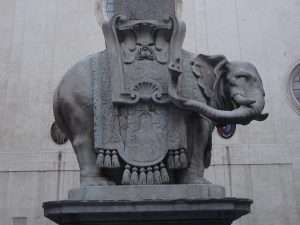
Eyes. ears and nose?
Continued: "The obelisk is 5.47 meters tall and is the smallest of the 13 ancient obelisks present in Rome nowadays.[2] Together with pedestal and elephant, the statue stands 12.69 meters tall.
The obelisk is considered to be one of a pair; the other is in Urbino.

'Lower' prodding 'higher'?
Continued: "Central to the initial teaching which they released in the Fama Fraternitatis was a detailed description of the 'tomb' of their founder Christian Rosencreutz. This tomb is described in terms that invest it with the properties of a great hidden mystery, both in the circumstances of its discovery and in the symbolic design of it. In this we have, in another form, the mysteries of the center of the magic circle or the Wheel of Death and Rebirth. These have remained the same since the 'mysteries' of antiquity. Indeed this is to be expected..."
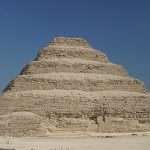
A beginning of something?
Or in partial form as the ’Cube of Space’. Indicated in such books as ‘New Dimensions for the Cube of Space’. By D. Hulse. Or ‘Experience of the Inner Worlds’. By G. Knight. Or even the information ‘assessed’ by the Indian mathematician Ramanujan. In the book... ’The Morning of the Magicians’. By L. Pauwels and J. Bergier. Six sides that enclose a volume, a space. A time- space. All relevant/symbolic within that journey. Six plus the middle bit equates to the symbolism of the number seven. Or more importantly, the origin of it, [ symbolic of ]. That link to 'Ain Sof'. [ Explained elsewhere ].
"The principle conclusion to be drawn from what has been said is that all the world, over descriptions of spiritual centers that are more or less hidden [ or at least accessible only with great difficulty] bear a close resemblance to each other. The only plausible explanation for this similarity is that, if the accounts refer to different centers, as seems to be true in some cases, then they must be all emanations, so to speak, from one supreme center, just as all particular traditions are finally only adaptations of the great, primordial tradition."[Chapter 4, 'The King of the World' by R. Guenon].

''A special place in hell''. Question. For the Germans or Euro? WATCH THIS SPACE.{edited 8.2.19}.
"Swedenborg's description of the multiplicity of worlds or 'levels' of being, represented by the concepts of heaven and hell is so fundamentally different from legend and myth that it takes some readjustment of thinking to understand his findings. Fundamentally, a mans life in these worlds is based on what he really is. In the present world a person explores, develops, and forms himself. We are quite capable of deceiving ourselves and others. In the worlds beyond this one, people are 'sorted' out according to what they really are. They move toward the essential reality of their existence. Thus the worlds beyond this one are even more essentially psychological and 'spiritual' than this one." [Chapter 4, 'The Presence of Other Worlds].
Understanding what this subject, regardless of time, place or culture... infers by the word ''divine''...within the context of its framework, gives a logic, and therefore a possible understanding to the above quote. The Egyptian equivalent was what most refer to as the benben stone. The correct spelling of which-after a further 'understanding'- has ‘et’ on the end of it. That ‘feminine’ aspect/principle which always in some form or other either directly or indirectly relates to that ‘birth/origin’ symbolism, [from both 'known' / 'unknown' start points. Representational of]. Many authors in some form or other use the word ‘divine’ to represent, [ by implication ] that same meaning, i.e., especially Sufi lore. Such authors as Ibn Arabi. Or Al-Ghazali. The most ‘divine’ of words being from the ‘holy of holies’. [ Hebrew ].
The ‘root’ of that most ‘divine’ word, i.e., ''Holy'', would you believe is a very basic word. One of the most basic words in any cultures dictionary...’WHOLE’, i.e., the whole shebang/The whole story.. in relation to that framework. The full/whole one, i.e.,is there anything more ‘divine’ than ’life’? ..and/or the possible understanding of it...in relation to the individual, [ in their opinion, by implication ]. Egyptian equivalent = "Hieroglyph" means holy writings.
''The whole gamut of human experience {and/or emotions}''. Question. What animal represents that final word? ...Why?
Hence the link of that same word...To ‘gods' and 'goddess’. As representation of...the 'divine' bit, [ and therefore by implication to that familiar subject, by way of, amongst other aspects... 'anima/animus' ]. In relation to an understanding, i.e.,to use those different aspects of the 'self' [by way of; as one example; Mythology], to give the reader an insight into something. And that 'understanding' that is always represented in some form or other with different aspects of the psyche. Think about it, i.e., one has to come before the other - which implies a direction. [Chapter six. 'Esoteric Orders and their Work'. Mentioned elsewhere].
"O nobly-born, these realms are not come from somewhere outside thyself. They come from within the four divisions of thy heart, which, including its center, make the five directions. They issue from within there, and shine upon thee. The deities, too, are not from somewhere else: they exist from eternity within the faculties of thine own intellect. Know them to be of that nature." [The Tibetan Book of the Dead].
''Five'' in relation to the word ''quintessence''. Anything?

''He not busy being born is busy dying." Bob Dylan. In relation to ''the Great Turning at hand.'' All as a means...? Question. Which of those {concepts?} does the 'star' represent?
"This life principle, this basic essential of Being, and this mysteries elusive factor is the correspondence in man of that which we call spirit or life in the macrocosm." [Introduction to the book by A. Bailey]. Recall what ''correspondence'' implies.
"The word 'spiritual' should be associated with the word 'eyes'. This is a reference to the eyes of the mind or heart. To see is to understand." [From the book by T. Nottingham].
Hence all the above in relation to such quotes as: "There is a single source of life which envelops the universe and pervades man. By its presence in himself he is able to exist physically and function mentally." Paul Brunton.
And/or..."At the center is our essential identity, which the ancients called 'pneuma' or 'nous'. Pneuma is usually translated 'spirit', but today this word has become all but meaningless. Nous is traditionally translated 'intellect', but this is misleading as we now associate the word 'intellect' purely with rational thought, whereas nous is the witness of all experiences, whatever their quality. Plotinus describes nous as 'a knowing principle'. It is that in us - which knows..." [From the book by T. Freke and P. Gandy].
''Witness'' {objective view, i.e.,to stand outside of oneself. 'See' it?} in relation to a eureka moment - in the spiritual sense of the word - because of subject material. Hence the link to ''a knowing principle'' and/or ''gnosis''? Purpose of. Definition of {i.e.,by way of the cognitive faculty}. Enlarged elsewhere.
2:4 to enlarge.

 Side note: "It is therefore impossible for a scholar to possess knowledge of these problems, whether it be through his own researches or through his 'masters' teaching - without communicating part of that knowledge to others. This cannot be done in clear words; it must be done sparingly by way of hints. We find in the words of some of our Sages numerous hints and notes of this kind, but mixed up with words of others and with other subjects. In treating of these mysteries, as a rule, I quote as much as contains the principle idea, and leave the rest for those who are worthy of it." [Page 211 'Guide for the Perplexed' / Moses Maimonides].
Side note: "It is therefore impossible for a scholar to possess knowledge of these problems, whether it be through his own researches or through his 'masters' teaching - without communicating part of that knowledge to others. This cannot be done in clear words; it must be done sparingly by way of hints. We find in the words of some of our Sages numerous hints and notes of this kind, but mixed up with words of others and with other subjects. In treating of these mysteries, as a rule, I quote as much as contains the principle idea, and leave the rest for those who are worthy of it." [Page 211 'Guide for the Perplexed' / Moses Maimonides].


Fake news? Sympathy vote?
Continued: A {working?} example: "For convenience, all of the models discussed above and to be discussed as we proceed can be summed into two meta-models. {1} It is all done by our own nervous systems. As we advance towards 'higher intelligence', our brains can increasingly affect the universe, by quantum inseparability, creating first coincidences, then Jungian synchronicities, then seemingly 'external superhuman beings', who are really masks of the greater selves we are evolving into..." [Extract from the book 'The Cosmic Trigger'].
And/or..."...but if you are armed with the 'wand' of intuition, the 'cup' of sympathy, the 'sword' of reason and the 'pentacle' of valor, you will find there {the legends say} the Medicine of Metals, the Elixir of Life, the Philosophers Stone, True Wisdom and perfect happiness." [Extract from the book 'The Cosmic Trigger' by R. Wilson. Emphasis, this readers].
"A monk who had meditated long in search of Illumination finally received a great flash of insight. Rushing to his 'roshi' {Zen master}, the monk cried out, 'I have it! I have it! That rock there is inside my head.' "You must have a big head," the master replied, ''to hold a rock that size." [Extract from the book 'The Cosmic Trigger'. Mentioned elsewhere].
Think about in relation to ''primordial mound''. Its intent and purpose - within a 'journey'. Representational of.

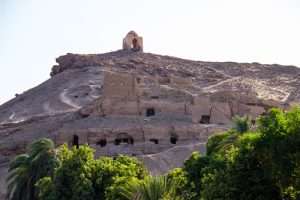
Qubbet el-Hawa or "Dome of the Wind" is a site on the western bank of the Nile, opposite Aswan, that serves as the resting place of ancient nobles and priests from the Old and Middle Kingdoms of ancient Egypt.
Analogy of same, i.e., different 'path' [ i.e.,of bringing about an understanding] but with the same final implication..."In the middle of the night, Balinas returned to the statue [ Hermes Trismegistus ] and eventually fell asleep leaning next to it. The boy dream't of an old man standing next to the opening of a cave. The man looked familiar, but it was not Hermes. 'Oh, Balinas,' the man called out. 'Rise and enter into this chamber to gain knowledge of the secrets of creation, so as to obtain a true representation of nature.' 'I can see nothing in that darkness,' replied Balinas, 'and the winds that blow there put out every flame.' 'Balinas. Put your light into a glass vessel!' suggested the man. The boy had never seen such a lamp, but he knew at once the idea would work. 'Who are you that allows me to profit from your favor?' asked the savvy boy. And the man said: 'I am your own being, perfect and subtle.' Then Balinas awoke, full of joy. He set a torch inside a glass, just as the man had said, and entered the chamber shortly after sunrise the next day. The chaotic winds still blew, but the lamp stayed lit and guided him deep into the rocky cavern. Before long the winds abated......." [Chapter 1, 'The Emerald Tablet' by D. Hauck]. Put ''lamp'' in the usual box for a 'deeper' understanding, relative to the other highlighted 'key' words. Finally think about 'the lot' in relation to 'archetypes.' The creation of.
Understanding that 'framework' [ relative to the 'divine bit'] allows a possible answer to shine through. A plausible one.
"Alongside the Christian Gospels discovered at Nag Hammadi were found works by Plato and works attributed to the mythical ancient Egyptian sage Hermes Trismegistus." [From the book by T. Freke and P. Gandy].
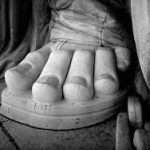 "................we are very likely to discover new meaning in the old
"................we are very likely to discover new meaning in the old forms through the process of turning religion inside out. Only when we have discovered for ourselves these regions will we be able to read and use the old maps, to make use of the vast cultural heritage of all religious traditions, the spiritual knowledge embodied in the teachings, literature, and the symbolic forms of all traditions and all ages. When we find the root within our selves, these will reveal to us their meanings."............."Once we have the key we will find those meanings and images and traces everywhere." [Page 31,32 'Alexandria'. Vol 1. Mentioned elsewhere].
forms through the process of turning religion inside out. Only when we have discovered for ourselves these regions will we be able to read and use the old maps, to make use of the vast cultural heritage of all religious traditions, the spiritual knowledge embodied in the teachings, literature, and the symbolic forms of all traditions and all ages. When we find the root within our selves, these will reveal to us their meanings."............."Once we have the key we will find those meanings and images and traces everywhere." [Page 31,32 'Alexandria'. Vol 1. Mentioned elsewhere].
'Mans Search for Meaning' / Viktor Frankl.
"This session ran 14 typewritten pages, and is so of one piece that its difficult to give excerpts, without including a good bit of background information. Here are portions of the last half of the session. Earlier, Seth and Gene had been discussing reality, and Gene had commented that existence was a "kind of a lovely colossal joke." Seth answered that "it is no joke. It is a means for the whole to know itself." ['The Seth Material' ].
Together with... "There is no past, present , and future. These only appear to those who exist in three dimensional reality. Since i am no longer in it, i can perceive what you can not. There is also a part of you that is not imprisoned within physical reality, and that part of you 'knows' that there is only an eternal now. The part of you that knows this is the whole self." [Chapter 12, same book]. Think about it in relation to 'archetypes'. and/or ''simultaneity {ously}'' etc.
That word 'divine' constantly used throughout all esoteric literature . Its most constant 'common' factor. That same subject that in the modern day is called Perennial Philosophy. Understanding that basic 'constant' gives meaning to the first paragraph within the introduction to the book 'The Perennial Philosophy' [by A. Huxley]....
i.e., "Philosophia Perennis....the phrase was coined by Leibniz....but the thing....the metaphysic that recognizes a divine reality substantial to the world of things and lives and minds....The psychology that finds in the soul something similar to, or even identical with, divine reality...The ethic that places mans final end in the knowledge in the immanent and transcendent ground of all being....'the thing' is immemorial and universal."
''Metaphysical simply means 'beyond the physical'." [Quote by P. McKenna 'The Three Things that will Change Your Destiny Today].
Or what the author of such books as 'The Sacred History' defines throughout as 'idealism'...being something indicative of... "mind before matter". That same link to what became known as...’King’ ship. [ Explained elsewhere ] That alpha/omega or beginning and end encompassing those positive and negative ‘aspects’. [ Sumerian equivalent... ‘Me-s’ ].
Side note: ''The mysteries of the Greeks were based on the Egyptian mysteries, and in Egypt, a mystery is about mes, the ancient word for 'birth'. A mystery is about the souls origin, the manifestation of spirit IN form, the transmutations of a lifetime, the bodys death and the souls eternal return to the source. Birth and death mysteries are always hidden...'' [Page 361 'Dreams of Isis'].

An imaginative eye?
Continued: {Practical?} example...An Irish film-maker {Paddy Slattery} talking to BBC 'Outlook' {BBC World-service/27.3.16}. On how he came to terms with his physical condition after being in a car accident and being told he would never walk again: "An amazing thing happened. When your body switches off; at least for me; my imagination switched on. That's when i started to discover other possibilities...boundaries started to withdraw as it were - the canvas became blank again - and i could paint my own picture of what i thought life was all about. My own imagination and my own power of attention could alter my physical reality. Mind over matter was my mantra..."
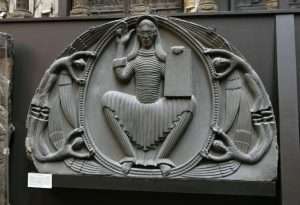
Blank?
That development, that potential that lies dormant in all individuals. In all ‘life’ forms. [ In their opinion ] It has a certain logic to it. How can we make use of anything until we become aware of it?
"Tabula rasa is a Latin phrase often translated as clean slate in English and originates from the Roman tabula, a wax-covered tablet used for notes, which was blanked (rasa) by heating the wax and then smoothing it.[1] This roughly equates to the English term "blank slate" (or, more literally, "erased slate") which refers to the emptiness of a slate prior to it being written on with chalk. Both may be renewed repeatedly, by melting the wax of the tablet or by erasing the chalk on the slate."
Analogy of same: "The vedas have persisted down the ages because the rishis understood the superiority of mind over matter - as the proper means of transmittal. What can excel the ''tablets of the heart''? [Extract from the book 'Autobiography of a Yogi'. Mentioned elsewhere]. Try ''bosom'' relative to the ''divine bit'' as a means to an understanding?
Hebrew equivalent: "Tablets'' in relation to those 'Ten commandments'? AS A MEANS...?
THE REAL QUESTIONS, HOWEVER, REMAIN THE SAME.
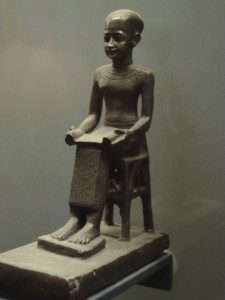
Blank script?

Roman tabula, or wax tablet, with stylus.
Practical example? " Thought is a force, even as electricity or gravitation. The human mind is a spark of the almighty consciousness of god..." [Same book]. As is...
"Forget the past,'' Sri Yukteswar would console him. 'The vanished lives of men are dark with many shames. Human conduct is ever unreliable until man is anchored in the 'Divine'. Everything in future will improve..." [Same book. Emphasis, this readers].
Try ''Anchored'' to see how that is represented within subject material - all as a means…?
Question. A world wide conspiracy?
A more 'practical' example being the methods used by most 'mystery' clubs in relation to each member. Giving each an insight into the benefits of understanding higher/lower aspects of the 'self'. Objectivity, one of its main aims and principles. Example of such 'The Wisdom of the Fourth Way'. Mentioned elsewhere. Keep the coffee pot warm.
'On Having No Head: Zen and the Rediscovery of the Obvious' / D. E. Harding.
Question. Could it be that this primary occupation of 'self awareness' is what this subject is all about. Nothing more than the equivalent to all the modern 'self help' tapes and publications. Maybe their origins? That is..... a possibility. One possibility.
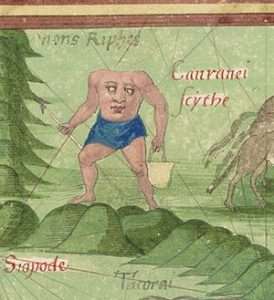
Unusual ''religious beliefs'' of a universal mind set?
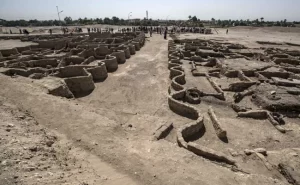
A 'new look' - a refresher - in the time of Amenhotep III.
"When the word Yoga is mentioned, most people immediately think of some physical practices for stretching and stress reduction. This is one aspect of the Yogic science, but actually only a very small part, and relatively recent in development. The physical Yoga, or Hatha Yoga, was primary designed to facilitate the real practice of Yoga ---namely, the understanding and mastery over the mind. So the actual meaning of 'Yoga' is the science of the mind....
....We all want to know more about our minds: how they work and how we can work with them. [Think about it, in relation to the ''divine bit'']. This field is closer to us than anything else in life. It may be interesting and useful to know how to fix a car or cook a meal or how atoms are split. But something that holds a more vital and immediate interest for thoughtful people is their own mind. What is the mind? Does it determine our behaviour and experience or do we create and sustain its activity? What is consciousness? Can we turn within ourselves to study and understand, perhaps even control the mind? This is the subject matter of the ancient science of Raja Yoga. Traditionally, the word Yoga by itself refers to Raja Yoga, the mental science."
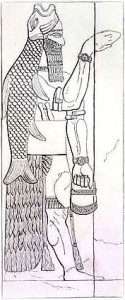
Threaded or weaved?

Two threads intertwined. Found on Oak island
"This begins our study of Raja Yoga, or Astanga [eight limbed], as it is sometimes called. The Yoga Sutras as expounded by the sage Patanjali Maharishi comprise the first and foremost scripture of Yoga. It was Patanjali who carefully coordinated Yogic thought and explained it to his students. As he expounded these thoughts, his students jotted them down in a sort of shorthand using just a few words, which came to be called the Sutras. The literal meaning of the word 'Sutra' is 'thread'. And these sutras are just combinations of words threaded together --- usually not even well formed sentences with subjects, predicates and so on. Within the space of these two hundred short sutras, the entire science of Yoga is clearly delineated... its aim... the necessary practices, the obstacles you may meet along the path, their removal, and precise descriptions of the results that will be obtained from such practices." [Introduction and 'chapter one', from the book 'The Yoga Sutras of Patanjali', translated by Sri Swami Satchidananda].
Analogy of same principle..."Thus, the disciplines of meditation [which are part of Yoga], and wisdom [the philosophical teachings for understanding reality as it is ] are the primary means to controlling the mind and allowing the individual to mature psychologically and spiritually." [Extract from the book by S. Ashby].
The understanding of a subject [i.e.,to study it - to understand its essence - its core value in parts and whole] has the same result.

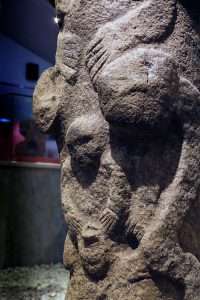
'Death' / rebirth? ''Transforming fingers''? A 'basket' in the hand is worth …..?'' And/or: ''The sahu keeps an individuals essence or fingerprint throughout its various incarnations.'' [Page 169 'Dreams of Isis: A Womans Spiritual Sojourn' / N. Ellis].'
''Getting ones head around it?'' Question. What faculties are 'used' to perform - that 'action' of the mind? Question 2. What number is represented within it? Question 3. WHY represent anything at all?
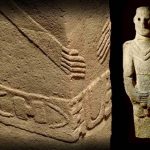
'Grasping' or transforming?

The eye of Horus. An objective one.
"The task of the scholar of esoteric studies is not to prove that such an invisible 'tradition', hidden behind the veil of historic events, did or did not exist; as such; before the Renaissance; rather, the task consists of trying to grasp and to describe the different facets of the emergence of this idea as it appears in the imaginary and the discourses of the last centuries [and/or millenniums. This readers input]. Quote by A. Faivre.

Ptah. Static or dynamic. Anchored?

Stillness?
And/or..."If a yoga practitioner cannot easily flow attention into a state of alert stillness, techniques are recommended to provide a means of concentrating awareness. This can be done through breathing exercises {pranayama}, repetition of a word or word phrase {mantra}, intense concentration on a question {inquiry}, or a combination of all three..." [From the book 'Kriya Yoga'. Mentioned elsewhere].
Question. Is the above not a detailed description of a sequence of events describing 'a learning curve'? The symbol of which within this subject = ''arc''.
Question 2. Why?
As an example...Think about the above, in relation to the Hebrew 'tree' and that same 'connectedness' [represented as a 'rope' ---coiled or otherwise], within the Egyptian equivalent as seen within its 'art' and sculptured forms, which have to be deciphered to understand that same 'inner quality'. Try ''quality''.
"Is it true that each of these states can only be defined by its Qualities?'' asked the pilot... ' Yes,' agreed Dominique. 'But we must conclude that we define Quality by the effects we attribute to it'....'Alas! We always seem to wind up back on earth,' said Jean-Jacques. 'I guess we are obliged to if we want to use our reason to grasp notions that go far beyond it'..." ['Journey into the Light'].
'Afar' / 'Broad' to enlarge.

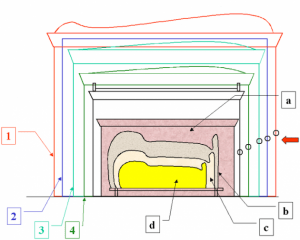
The sacred hemp rope found on three of the seals. 'Eleven' turnings on each one. 'Thirtythree' in total.
A {working?} example: "Perhaps you have heard the saying: 'When the student is ready, the teacher appears', or 'seek and you will find'. All persons who enter a real search for something greater, discover that help becomes available. In this Teaching, we are told that there is help available to us but we cannot receive it in our current condition or state. We must enter the third state of consciousness in order to ''catch the rope'' that is 'handed down to us'. This third state is Self-Remembering and it is characterized by non-identification, inner separation, external considering...One has managed to step out of personality and its many petty requirements and found a place where a certain transcendental peace exists." i.e., ''Self remembering'' ...in relation to the understanding of that universal constant the ''divine bit'' - by way of an objective exercise. Hence...
"This is a place that is familiar to us. We were all born with some knowledge of this in our essence, but life and its hardships blinded us as we developed personality and its defensive mechanisms." ['Wisdom of the 4th Way']. Try ''archetype'' and/or ''rope''.
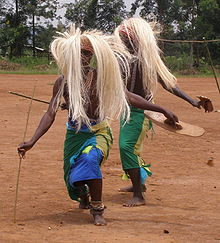
"The "Intore", once the elite of the traditional Rwanda army (The Chosen Ones), were not only trained as military but also in high jump and dance. They were known for there remarkable technique allowing them to jump over 2m40.....The most famous traditional dance is Intore, a highly choreographed routine consisting of three components - the ballet, performed by women; the dance of heroes, performed by men, and the drums. Traditionally, music is transmitted orally with styles varying between the social groups."
Working example: Here is Karnak! Twin obelisks which guard the pylon gates in Karnak dominate the skyline, rising above the huge columns of the hypostyle hall. We see the statue of a king with the far-seeing eyes watching over the wall of cartouches that hold the names of prisoners taken by the pharaoh, their cartouches wrapped in coils indicating rope...Time to move on. We gather around the sycamore tree, sacred to Hathor. Emil tells us its history—how it almost died after two thousand years of standing in this spot. He and Mohamed brought it water and got people to tend it again. Several of us give it offerings of water. It is a very hot day and to give away our precious water to this great standing one is an honor for me. It is a healing tree and is in fruit now. Emil eats one of the figlike fruits and spits out the seeds on the ground. Oh, that a grove of these beautiful ones would grow from each seed....He says it will cure eczema....
 We continue on with the tour. We are fortunate to have a few minutes alone in the back chamber of the temple at Karnak where the statue of the god was prepared and brought forward to the people. Emil points out to us the spaces where huge hinges held a door no longer there. I look down that long hallway lined with columns and imagine the obelisks topped with silver and gold—the first and last things in this temple touched by the sun each day. Imagine the majesty of seeing the procession, of being there when this temple was in its glory—colors, flags, and throngs of people in that moment honoring life and Egypt and their pharaoh. The doors would open, and the god would be processed out for the people to see. Flags would fly with brilliant colors; people would experience the entire range of human emotions. Offerings of incense would lend the sweet aroma of scented smoke to waft over the probably not-so-sweet smell of the gathered humanity, purifying and blessing everyone.
We continue on with the tour. We are fortunate to have a few minutes alone in the back chamber of the temple at Karnak where the statue of the god was prepared and brought forward to the people. Emil points out to us the spaces where huge hinges held a door no longer there. I look down that long hallway lined with columns and imagine the obelisks topped with silver and gold—the first and last things in this temple touched by the sun each day. Imagine the majesty of seeing the procession, of being there when this temple was in its glory—colors, flags, and throngs of people in that moment honoring life and Egypt and their pharaoh. The doors would open, and the god would be processed out for the people to see. Flags would fly with brilliant colors; people would experience the entire range of human emotions. Offerings of incense would lend the sweet aroma of scented smoke to waft over the probably not-so-sweet smell of the gathered humanity, purifying and blessing everyone.
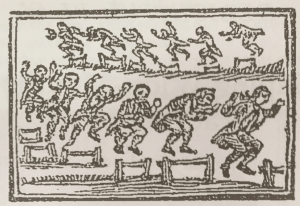
''Twelve-_Lords_a_Leaping.''
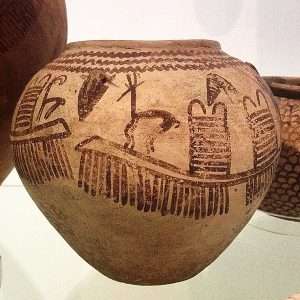
A leap across a gap?
Now we see the tourists arriving in masses. We head for a shady café for cool drinks and a rest. On the way, we get to step over a rope and place our ears against a huge block of granite. Emil knocks on it, and we all can hear it through the granite! Another Egyptian mystery!
The café is a good break from the heat. To our right is the Sacred Lake, but it is not accessible to us. We move under the shaded canopies to sit at the tables and enjoy our drinks and snacks. Snippets of conversations in different languages blend with the music from the cashier’s radio playing Egyptian music. I purchase small scarabs to take home for gifts and some stylish pens of Isis and Horus. The vendor gives me two larger scarabs as my gift. Everyone is pleasant and mellow.
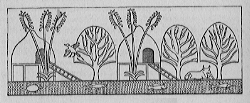
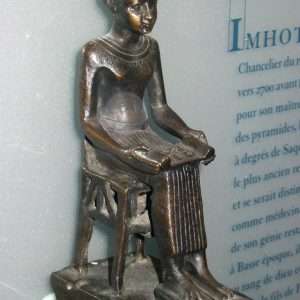 And/or: We are not allowed to enter the holy of holies {at Edfu}, where the ceremonial boat that carried the small statue of the god still remains, but we are able to stand at the rope that divides us from this treasure and look to our hearts’ content. Normandi particularly wants us to see the library room, a small chamber just big enough for one person to stand within, with all the names of the books written by the priest scribes that are carved there.... I have always been partial to libraries, but this one is a bit small, and the only information is the title of the books... ['Invoking the Scribes of Ancient Egypt'].
And/or: We are not allowed to enter the holy of holies {at Edfu}, where the ceremonial boat that carried the small statue of the god still remains, but we are able to stand at the rope that divides us from this treasure and look to our hearts’ content. Normandi particularly wants us to see the library room, a small chamber just big enough for one person to stand within, with all the names of the books written by the priest scribes that are carved there.... I have always been partial to libraries, but this one is a bit small, and the only information is the title of the books... ['Invoking the Scribes of Ancient Egypt'].
Side note: ''Third state'' in relation to 'transcendent third' gives meaning to such descriptions as: "The Master led his pupils to a terrace where the temple astronomers welcomed them. A cry of wonder came from every heart, for an immense gold circle dazzled their eyes. It measured 365 cubits on the outside and 360 0n the inside; its breadth was about three quarters of a cubit..." ['Her-Bak']. All as a means...?
Question. Solomon's Temple three quarters aspect? Transcendent third?
And/or {from a different perspective?}..."And this is perhaps the secret reason for which the doctrine of Ibn Arabi was so feared by the 'adepts' of the literal religion, of the historical faith...of the dogma imposed uniformly upon all. He, who is a disciple of 'Khidr' {'green man' link. Western equivalent} - possesses sufficient inner strength to seek freely the teaching of all masters..." [From the book 'The World Turned Inside Out'].
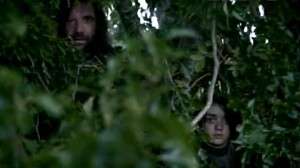
Green Men?
"Same subject; but from a different perspective?..."The respected scholar Dr. David Frawley, Director of the American Institute of Vedic Studies, writing in the bimonthly journal 'Yoga International' [oct/nov. 1996], states - ' Yogananda can be said to be the father of yoga in the West - not the mere physical yoga that has become popular, but the spiritual yoga - the science of self realization - that is the real meaning of yoga." [Extract from the book 'Autobiography of a Yogi'. Mentioned elsewhere]. As is...
"Pranayama may be simply rendered as 'breathing' but there is more to it than this. Nevertheless at a merely psycho physical level, deep, rhythmical breathing is a profoundly relaxing technique. A question put to me recently by a leading Sufi was : 'When did the Christian Church stop breathing?' This was not a cynical remark, it was a serious Inquiry as to when and how the universally known psycho-physical techniques for 'recollection' passed out of the consciousness and the teaching of the Western Church. Pranayama may be more satisfactorily translated - 'Identification with the life-force'...of which each person has his or her own personal rhythm." [From the book by A. Duncan. Emphasis, this readers]. Try ''recollection''.
'Octave' to enlarge.
Understanding that universal framework makes sense of the above - gives it a certain 'logic' within the subject as a whole. As does...


''Sold to the owner of a 'Bed and Breakfast' - who hung it above his bed.'' {'Salvage Hunters' / S7 EP4}.
"...the word Yoga is a sanskrit term meaning to unite the individual with the 'Cosmic'. The term has been used in certain parts of this book for ease of communication since the word ''Yoga'' has received wide popularity especially in western countries in recent years. The ancient Egyptian equivalent term to the Sanskrit word yoga is: ''Smai'' - which means union, and the following determinative terms give it a spiritual significance, at once equating it with the term ''Yoga'' as it is used in India. When used in conjunction with the ancient Egyptian symbol which means land, ''Ta'' the term 'union of the two lands' arises." [Extract taken from the book by Sebai Ashby].
''TA'' link to Tatenem and/or Taten - some say the 'God' of the ''Primordial Mound''. Memphis one of his/her main locations. The border of both upper/lower Egypt. The Sycamore tree being one of its emblems. To meditate [and/or study] by way of higher and lower = a result?

Mad, thoughtless or just psychotic?
Side note: "The basic view is that at birth the two spheres of the psyche, consciousness and the Unconscious, become separated. Consciousness is the element marking what is separated off, individualised, in a person, and the unconscious is the element that unites him with the cosmos {''bit''?}. The unification of the two elements via meditation {and/or ritual/prayer/ study} is the principle upon which the work is based. The unconscious must be inseminated by consciousness being immersed in it. In this way the unconscious is activated and thus, together with an enriched consciousness, enters upon a 'supra-personal' mental level {'higher'?} in the form of a spiritual rebirth." [Forward: 'The Secret of the Golden Flower'].
REMEMBER- all in relation to define a MINDSET.
As an example..."Egyptian mythology, when understood as a system of Yoga [ ''union'' of 'higher' / 'lower'. Enlarged elsewhere], gives every individual insight into their own divine nature and also a deeper insight into all religions and Yoga systems." [Same book].
N.B. ''Higher'' = Vulture - Lotus - Reed or Su plant. ''Lower'' = Cobra - Papyrus - Bee. All as a representation of something. Anything?

Pavilion?
Head scratch: "It seems that the Aztecs sometimes called Venus Acatl. This latter meant 'reed -day', and was the name of the day on which the Venus cycle began. The deity who presided over the reed day was, Acatl, was the chief god of the pantheon Tezcatlipoca, whose name means 'Smoking Mirror'. ['The Zelator'].
'Reed' in relation to papyrus - and 'its' relation to 'words' {logos?} - defines what is implied when the Israelite's 'cross' over the {reed?} sea. Try ''gap'' and/or ''mirror'' and/or ''Venus'' to 'see' something other than the obvious - to continue that 'journey' of discovery. BEFORE those bigger questions are asked.
The Latin name Venus ('love, charm') stems from Proto-Italic *wenos- ('desire'), ultimately from Proto-Indo-European (PIE) *wenh₁-os ('desire'; compare with Messapic Venas, Old Indic vánas 'desire').[1][2]
It is cognate with the Latin venia ("favour, permission") through to common PIE root *wenh₁- ("to strive for, wish for, desire, love").[1][3] The Latin verb venerārī ("to honour, worship, pay homage") is a derivative of Venus.
"In a broad sense 'Yoga' is any process which helps one achieve liberation or freedom from the bondage to human pain and ignorance. So whenever you engage in any activity with the goal of promoting the discovery of your true self, be it studying the wisdom teachings, exercise, fasting, meditation, breath control, rituals, chanting, prayer, etc., you are practicing Yoga." [Same book by S. Ashby].
Question. How do those first impressions feel now? - 'Wild' or 'domesticated' Anything?

Only 'two' entwinned strands WITHIN a 'triple' spiral. Question. Common factor = subject material?
Hindu equivalent..."The word 'guna' is usually translated as quality, but it should be borne in mind that there is here no question of a substance quality relationship between the Mula-prakriti and the gunas. The gunas are the mula-prakriti and the latter are the gunas in equilibrium. For this reason some have preferred to speak of the Three Strands, the totality of which make up the twisted rope of Manifested Being." [Page 135, 'The Yoga of the Bhagavat Gita]. Together with.... "Guna : Literally quality or ''strand''; a technical term for the three moments of the Mula- prakriti...." [Page 219, same book].
Recall what those three aspects always represent - regardless of culture. Refresher - Part 1.
As an example use those three [aspects?] - to define the following..."Just as the practice of concentration is the ''art of forgetting'' and the practice of profound 'communion', or meditation, is the mastering of the ''art of sleeping'', so does the 'contemplation' of authentic initiation signify the mastering of the ''art of dying''. [Extract from the book by Tomberg].
"For everyone who asks receives, and he who seeks finds, and to him who knocks it will be opened." New Testament.
 "The idea of meditation should not frighten you, because in your daily life you already perform many kinds of meditation; it simply happens. Your skills and talents are perfected solely through meditation. Without one- pointed attention, is it possible for a doctor to cure a disease, a judge to make his decision, a teacher to give a lesson? Without concentration, can one make an apparatus such as radar, cook food, drive a car, keep the rhythm in music, solve mathematical problems? A degree of meditation is required to achieve anything. But in all of these things, your meditation is directed toward the world, not toward 'god'' [or; as one example - YHVH. Explained within].... [Chapter 5, 'Play of Consciousness' by Swami Muktananda]. OR...
"The idea of meditation should not frighten you, because in your daily life you already perform many kinds of meditation; it simply happens. Your skills and talents are perfected solely through meditation. Without one- pointed attention, is it possible for a doctor to cure a disease, a judge to make his decision, a teacher to give a lesson? Without concentration, can one make an apparatus such as radar, cook food, drive a car, keep the rhythm in music, solve mathematical problems? A degree of meditation is required to achieve anything. But in all of these things, your meditation is directed toward the world, not toward 'god'' [or; as one example - YHVH. Explained within].... [Chapter 5, 'Play of Consciousness' by Swami Muktananda]. OR...

Pussy galore or just fake news? What would MOTHER RUSSIA think? Send in the cossacks? Yevgeny Prigozhin?
"Meditation is not a religion. Mindfulness is simply a method of mental training. Many people who practice meditation are themselves religious, but then again, many atheists and agnostics are keen meditators too." [Chapter one, 'Mindfulness' by M. Williams and D. Penman]. One could also therefore 'meditate' on the word 'objective' if only to understand its benefit relative to 'subjective' - in all things- i.e., from both an inner and outer perspective.
'On Having No Head: Zen and the Rediscovery of the Obvious' / D. E. Harding.
"...To meditate is to deepen; it is to go to the heart of things." [Extract from the book by Tomberg. 'Letter 21' ].
 ..."Meditation,i.e.,the gradual deepening of thought, has its stages, which comprise pure and simple concentration on a subject, understanding the subject within the totality of relationships that it has with reality, and, lastly, intuitive penetration into the very essence of the subject. Just as prayer leads to mystical union of the soul with the 'divine', so does meditation lead to grasping a direct knowledge of eternal and immutable principles..." [Same book]. The common factor between those two being a ''repetition'' of something. The main symbol of which is the 'plough'. Use the usual box to see if you agree or disagree. Try ''grasp''.
..."Meditation,i.e.,the gradual deepening of thought, has its stages, which comprise pure and simple concentration on a subject, understanding the subject within the totality of relationships that it has with reality, and, lastly, intuitive penetration into the very essence of the subject. Just as prayer leads to mystical union of the soul with the 'divine', so does meditation lead to grasping a direct knowledge of eternal and immutable principles..." [Same book]. The common factor between those two being a ''repetition'' of something. The main symbol of which is the 'plough'. Use the usual box to see if you agree or disagree. Try ''grasp''.
A {working?} example: "For a Shaman who wants to retrieve information...'imagining what to look for' is the first step in achieving any result. 'Imagining what you want,' is as necessary for you when you desperately need a parking place - after say arriving minutes late for work - as when you wish to learn how to fly an airplane. Whether you realize it or not you use your imagination every time you are confronted with a new challenge and must decide what you want. You use your imagination to choose what question to ask or to decide what your focus will be. You create vivid sense-based images that help you 'see' or feel what you are looking for. You then act on those images." ['Secrets of Shamanism: Tapping the Spirit Power Within You' / J. and L. Stevens]. Recall ''image'' Part 1.
Try the title of the book to 'see' it from the shaman point of view.
That FINAL sentence in relation to: ''As above - so below''. Think about it all in relation to that ''bit''.
Side note: The English word 'focus' comes from the Latin for 'fireplace'. ['The Chase' / ITV / 31.1.22].
Hestia to enlarge.
'Shamanic Wisdom in the Pyramid Texts: The Mystical Tradition of Ancient Egypt' / J. Naydler. Enlarged elsewhere. Coincidence or a ?
As an example..."...in the Book of the Dead, the term ''Sema [Snai] Tawi'' is used. It means ''Union'' of the two lands of Egypt.'' The two lands refer to the two main districts of the country, North and South, and in a mystical sense they refer to the gods Heru [the north] and Set [the south land]- who are elsewhere referred to as the spiritual Higher Self and lower self of a human being, respectively. Thus the term Sema Tawi is compatible with the Indian Sanskrit term ''Yoga,'' which also means union of the Higher Self and lower self ..." [Extract from the book by S. Ashby. Mentioned elsewhere].
''The Hindu goddess Saraswati is regarded as the inventor of Sanskrit.'' ['The Chase'].
Scorpion king?
Question. Higher or lower aspect?
''In Sanskrit, the verbal adjective sáṃskṛta- is a compound word consisting of sáṃ ('together, good, well, perfected') and kṛta- ('made, formed, work').[45][46] It connotes a work that has been "well prepared, pure and perfect, polished, sacred".[47][48][49] According to Biderman, the perfection contextually being referred to in the etymological origins of the word is its tonal—rather than semantic—qualities. Sound and oral transmission were highly valued qualities in ancient India, and its sages refined the alphabet, the structure of words and its exacting grammar into a "collection of sounds, a kind of sublime musical mold", states Biderman, as an integral language they called Sanskrit.''
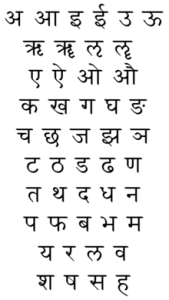
N/E?
 ''There is no national language in India.[4][5][6] However, article 343(1) of the Indian constitution specifically mentions that, "The official language of the Union shall be Hindi in Devanagari script. The form of numerals to be used for the official purposes of the Union shall be the international form of Indian numerals,"[6] while the clause 3 of Official Languages Act, 1963 mentions the, "Continuation of English Language for official purposes of the Union and for use in Parliament", thus denoting Hindi and English as the official languages of the Union.[7] Business in the Indian parliament can only be conducted in Hindi or in English.''
''There is no national language in India.[4][5][6] However, article 343(1) of the Indian constitution specifically mentions that, "The official language of the Union shall be Hindi in Devanagari script. The form of numerals to be used for the official purposes of the Union shall be the international form of Indian numerals,"[6] while the clause 3 of Official Languages Act, 1963 mentions the, "Continuation of English Language for official purposes of the Union and for use in Parliament", thus denoting Hindi and English as the official languages of the Union.[7] Business in the Indian parliament can only be conducted in Hindi or in English.''
''Devanagari (/ˌdeɪvəˈnɑːɡəri/ DAY-və-NAH-gə-ree; देवनागरी, IAST: Devanāgarī, Sanskrit pronunciation: [deːʋɐˈnaːɡɐriː]), also called Nagari (Sanskrit: नागरी, Nāgarī),[9] is a left-to-right abugida (a type of segmental writing system),[10] based on the ancient Brāhmī script,[1] used in the northern Indian subcontinent. It was developed in ancient India from the 1st to the 4th century CE[1] and was in regular use by the 7th century CE.[9][11] The Devanagari script, composed of 47 primary characters including fourteen vowels and thirtythree consonants, is the fourth most widely adopted writing system in the world,[12] being used for over 120 languages.''

S/W? ''Right to left''?
''Devanagari is a compound of "deva" (देव) and "nāgarī" (नागरी). Deva means "heavenly or divine" and is also one of the terms for a deity in Hinduism.[20] Nagari comes from नगरम् (nagaram) a Sanskrit word which means town. Hence, Devanagari denotes from the abode of divinity or deities.'' [Wiki].
Nāgarī is the Sanskrit feminine of Nāgara "relating or belonging to a town or city, urban". It is a phrasing with lipi ("script") as nāgarī lipi "script relating to a city", or "spoken in city".[21]

Qena = 'New City''.
Devanagari Script known as 'Script of the divine city' came from Devanagara or the 'city of the god'. And hence interpret it as "[script] of the city of the gods"
Refresher: "Everyone has an internal thought process: that silent other self who speaks to you; the one you debate with." [First sentence; first paragraph; first page of the book by Q. S. Lam].
All that can be used - as a means...?
Question. The word ''silent'' = Male or Female representation?

Fighting for the Constitution or Trump Dynasty? Team player or dictator? "You wont have to vote anymore." Is he already thinking of attempting to extend or change that maximum of 8 years?

Destiny waiting to happen?
Analogy of same..."Concentration without effort [what the author defines as ''one in oneself'', i.e.,in part - the benefit of being objective about something / anything] - that is to say where there is nothing to suppress and where contemplation becomes as natural as breathing and the beating of the heart - is the state of consciousness [i.e.,thought, imagination, feeling and will] of calm, accompanied by the relaxation of the nerves and the muscles of the body. It is the profound silence of desires, of preoccupations, of the imagination, of the memory and of discursive thought. One may say, that the entire being becomes like the surface of calm water, reflecting the presence of..." Continued...
"The use of analogy however is not limited, however to the sciences - it is truth to tell, universal - for neither philosophy, nor theology, nor science itself can do without it. Here is the role that analogy plays in the logic which is the basis of philosophy and the sciences: [1] - The procedure of classification of objects on the basis of their resemblance is the first step on the way to research by the inductive method. It presupposes the analogy of objects to be classified [i.e.,list of possibilities]. [2] - Analogy can constitute the basis of hypotheses." Continued...
'On Having No Head: Zen and the Rediscovery of the Obvious' / D. E. Harding.

Roger or Francis Bacon?
"Now 'pure induction' is founded on simple enumeration and is essentially only conclusion based on the experience of given statistics. Thus one could say: "As John is a man and is dead, and as Peter is a man and is dead, and as Michael is a man and is dead - therefore man is mortal." The force of this depends on number or the quantity of facts known through experience. The method of analogy, on the other hand, adds the qualitative element, i.e.,that which is of intrinsic importance, to the ''qualitative''. Here is an example of an argument by analogy: "Andrew is formed from matter, energy and consciousness. As matter does not disappear with his death, but only changes in form, and as energy does not disappear but only modifies the mode of its activity, Andrews consciousness, also, cannot simply disappear, but must merely change its 'form' and mode [or plane] of activity. Therefore Andrew is 'immortal''. This later argument is founded on the formula of Hermes Trismegistus [of 'Emerald Table' fame. Enlarged elsewhere. This readers input] - that which is below [matter/energy] is as that which is above [consciousness]. Now if there exists a law of conservation of matter and energy, there must necessary exist a law of conservation of consciousness or 'immortality''. Quotes taken from 'Letter One' within the book by Tomberg - including that which is underlined. All other parentheses; this readers input].
Something further to ponder on: ''Plane'' in relation to domain? Try ''domain'' on this page and in the 'Help' section.
Whether or not you agree or disagree with the above authors hypothesis, you begin to see how this subject has more to it than ''faith and hope''. To understand the logic of what he is implying - by way of an objective exercise- recall that universal framework in relation to the 'divine bit' - represented within the above paragraph as ''that which is of intrinsic importance to the 'qualitative''. [and/or ''quality'' - enlarged elsewhere]. It also defines the word ''consciousness'', i.e.,you cannot have one without the other; but one has to come before the other; which implies a direction. Top/down in relation to bottom/up. Lastly ''B'' therefore has to be a priority over ''A''. See it? Question. What does that imply?

Vessel or cap?
"The 'ordinary man' must make a spiritual start somewhere, sometime. The journey of a thousand miles begins with one step. Lao-tze observed."
'On Having No Head: Zen and the Rediscovery of the Obvious' / D. E. Harding.
Understanding the above; especially in relation to a 'Primary' over a 'Secondary' defines the following. It explains the following; but only if you have ''got your head around'' the above, [link to the meaning and purpose of the word ''gnosis''].
"...if we understand by 'miracle' not the absence of cause, [i.e.,that it would not be caused by anyone or anything - which would be more the concept of ''pure chance"], but rather the visible effect of an invisible cause, or the effect on a lower plane, due to a cause on a higher plane." [Quote; 'Letter Three' from within the book by Tomberg], i.e., IF "B" was a priority over "A".
'The Miracle in the Hudson'.
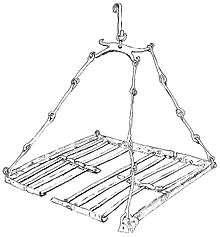
Twentysix links in a figure of 8.
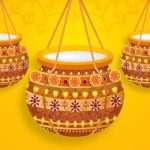
Tessellated?
From another perspective: "What we are dealing with in such cases is the manipulation of laws that hold in our materiality, and the suspension of lower laws by higher ones, which as yet are unknown to us. And if, in the 20th century, the majority of us live our entire lives without encountering indisputable examples of such phenomena, it does not necessary follow that such phenomena do not occur, or that they are impossible in principle, but only that the prevailing conditions - cultural, social, and psychological - in the secular era {especially in the West, and even more so in the countries belonging to the socialist camp} have to such an extent impeded the study and mastery of that method..." [Page 32, 'The Rose of the World' / D. Andreev].
And/or..."On the other hand, when the self is in communion with a 'higher' power, Nature automatically obeys, without stress or strain, the will of man. This effortless command over Nature is called 'miraculous' by the uncomprehending materialist." [Extract from the book 'Autobiography of a Yogi'. Mentioned elsewhere. Emphasis, this readers].
The real question however is the usual one. Fact or fiction. A possibility or not?
A {working?} example: "Tis true without lying, certain and most true. That which is below is like that which is above and that which is above is like that which is below to do the 'miracles' of the one thing. And as all things have been and arose from one by the mediation {meditation?} of one: so all things have their 'birth' {primordial mound?}- from this one thing by adaption..." ['Emerald Tablet']. Continued elsewhere.
Follow the title of the book to 'see' it in its broader {universal?} context.
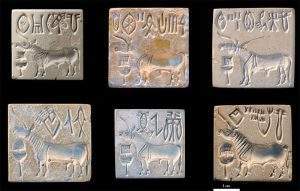
Stamp = imprint?
"Meditation is therefore the honest and courageous effort of the ''lower self'' to think together with the ''higher self'' in divine light. And just as concentration necessarily precedes meditation, so does the latter lead soon or later to contemplation...Contemplation is the union of the thinker with reality. Here one does not arrive at a ''conclusion'', but one receives - or undergoes - the imprint of reality." Try ''connectedness'' or ''connection'' for a further headscratch.
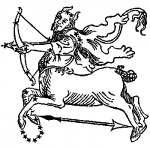
Sagittarius link?
Understanding the above defines such statements as the following; or at least; gives a clue to its interpretation {its implication?}..."Our lesson is to learn 'to be'. The freedom of being will extricate you from the oppression of doing. Herein lies the seed of knowingness that has the capacity to take you beyond all of this worlds knowledge..." [From the book 'The Reconnection: Heal Others, Heal Yourself' by E. Pearl].
''Knowingness'' in relation to the meaning and purpose of such words as 'Gnosis', - by way of the verb 'to be', i.e.,what it implies. Try ''to be''.
Question. What 'symbol' represents it?
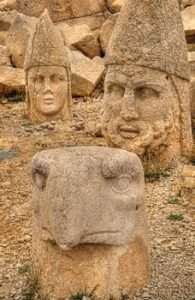
''Hints''?
That ''connectedness'' in relation to..."The Oxford Dictionary of the Christian Church defines Grace as 'the supernatural assistance of god bestowed upon a rational being with a view to his sanctification'. But this is not really a helpful definition in the present case. Grace also relates to a way of life, a plane of being, {archetype?} - and this is a very different matter from the supernatural shot in the arm suggested by the dictionary definition....
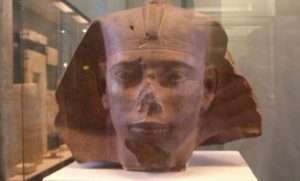
Djedefre.
By our faith {in Jesus Christ}...we are raised {by him} to a wholly new level of being; a new status is bestowed upon us. We are raised from servant-hood to sonship. We are no longer living according to the 'old Adam', the life of mere human nature...we are living the life of 'Grace'. Grace is the ambience in which we abide; our growth in Grace is a growth in acclimatisation to the climate of heaven 'which is all about us'. The work of grace is to perfect our nature, to raise it to a new level of being..." [From the book by A. Duncan. Emphasis, this readers].
Amazing Grace / Aretha Franklin {2018}.
Side note: ''In 1921 a statue of the climate activist, Greta Thunberg, was unveiled at Winchester University.'' ['The Chase'].

First Son of ASH-TON
Continued: ''Servant-hood'' and ''sonship'' in relation to: "It is therefore impossible for a scholar to possess knowledge of these problems, whether it be through his own researches or through his 'masters' teaching - without communicating part of that knowledge to others. This cannot be done in clear words; it must be done sparingly by way of hints. We find in the words of some of our Sages numerous hints and notes of this kind, but mixed up with words of others and with other subjects. In treating of these mysteries, as a rule, I quote as much as contains the principle idea, and leave the rest for those who are worthy of it." [Page 211 'Guide for the Perplexed'].
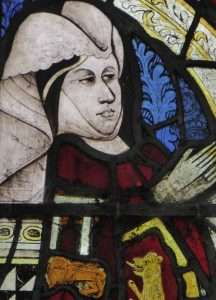
Hooded Women: Lady de Mowbray.
As an example: "At midday on 6th January {i.e., Epiphany}, work in the village comes to a halt, and soon a crowd assembles on Haxey Church Green. At 2 p.m., the church bells peal out, and down the street comes the ‘Lord’ and his ‘Boggins’, together with the ‘Fool’, all dressed like morris dancers. At the church gates, the Fool steps on to an old ‘mounting-stone’ { or 'stump'} and makes his traditional welcoming speech to the waiting crowd.
The ‘Lord’ then leads his officials and the people to the highest ground in the parish, where the ‘Boggins’ are spread out in a circle {'eleven' a side, sometimes 'thirteen'}. He then calls upon some distinguished visitor to throw the first ‘hood’ in the air. This is a roll of sacking {'sack'} about two feet long and three inches in diameter. It is up to any man to try and catch it and run away from the crowd but, if he is tackled, he must immediately throw it into the air, unless the challenger is a ‘Boggin’, in which case the hood is ‘boggined’ (a local word meaning thwarted) and is returned to the ‘Lord’, who throws it up again.
The games continue until 3.30 p.m., when all the captured hoods are redeemed for a shilling each.

''T''
A leather hood is now thrown, and the whole character of the game changes, with two large teams competing, each trying to wrestle the hood to their ‘home’ – a local public house {'Inn'}. Hundreds of men take part and the game resembles a giant rugby scrum. The players also enjoy the traditional right of ‘No Law’, which exempts them from the law of trespass.
It is the duty of the ‘Boggins’ to organise and supervise the contest, and to entice as many people as possible into the ‘sway’ or scrum – an experience not easily forgotten by those who have taken part! Surprisingly, no one ever seems to get hurt.
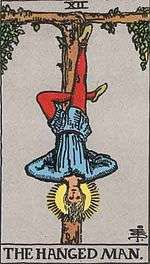
'Flower' pot head?
The hood hangs in a place of honour during the next year in the winning team’s ‘adopted’ public house {'foster'?}.
Until fairly recently, the games were played over several days, the concluding ceremony being that of ‘Smoking the Fool’, in which the Fool would sit in a rope loop suspended over a smouldering pile of slowly burning damp straw. Nowadays a token burning is included in the opening ceremony."
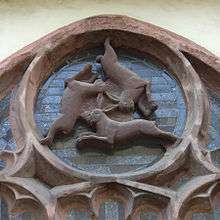
More hints?
And/or: "Indeed a grace of inspiration is involved in this moment: The actual state of Being finds itself in perfect accord and in resonance exactly concordant with an instant cosmic harmony {i.e.,a eureka moment - in the spiritual sense of the 'word'}. What is meant by ''god given grace'' should be understood along these lines and NOT as a ''dear god'' who busies himself with us personally." ['Sacred Science' / R. A. Schwaller De Lubicz].
Amazing Grace / Aretha Franklin {2018}.
REMEMBER before that inspiration {first impressionable one?} lifts one into the stratosphere. We are attempting to understand a MIND SET. That very first one. Before the written word came into common use.
''Son of'' by way of 'grace' = the result of a ''connectedness'' of something?
"...the 'nails' of objectivity - which give conscience to thought."

'Overhang' in the S/W.
The symbol of which is the Crown of Thorns, i.e.,"The 'thorns' of the crown center function as the 'nails' of objectivity..." [Taken from 'letter 5' from within the book by Tomberg].
"In that which concerns speculative 'philosophy' or metaphysics, the same role is reserved there for analogy. All conclusions of a 'metaphysical' nature are based only on the analogy of man.'' Link to ''aspects of''.
That word ''metaphysics'' can have a negative effect on ones ''lower aspects'' - if allowed to - look it up to understanding its true purpose - before those first impressions keep one in a 'fallen' state; if only in understanding another subject.

Thorny?
Refresher: "Through the combined efforts of Wilhelm and Jung we have for the first time a way of understanding and appreciating Eastern wisdom which satisfies all sides of our minds. It has been taken out of metaphysics and placed in psychological experience. Stripped of its archaic setting, 'The Secret of the Golden Flower' is the secret of the powers of growth latent in the psyche..." Try ''being is'' and/or ''rose'' as a beginning towards an end {'flowering'?}.
All as a means...? The REAL QUESTIONS however, remain the SAME!
Side note: ''all sides'' in relation to 'in profile' and 'face on'. Enlarged elsewhere.
"Everyone has an internal thought process: that silent other self who speaks to you; the one you debate with." [First sentence; first paragraph; first page of the book by Q. S. Lam].
